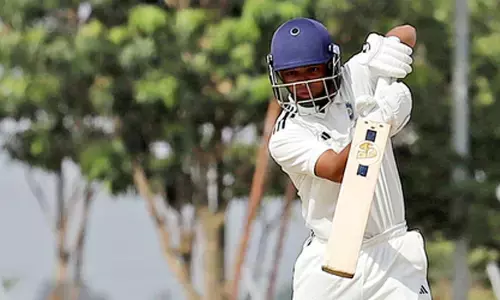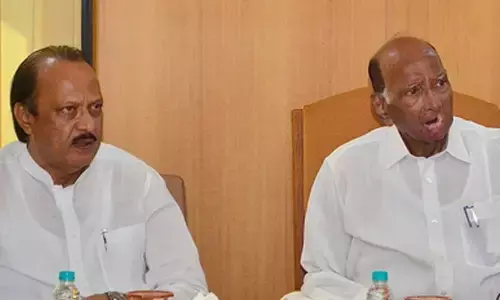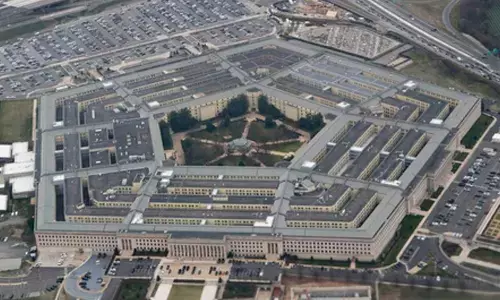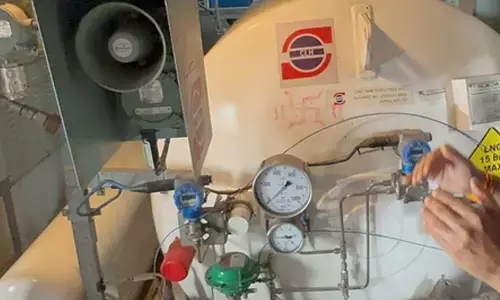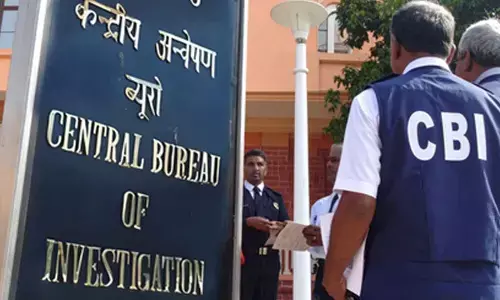Supreme Court to go in for fresh bench as Justice Lalit recuses

The Supreme Court on Thursday decided to constitute afresh the fivejudge Constitution bench to hear on January 29 the politicallysensitive Ram JanmabhoomiBabri Masjid land title dispute in Ayodhya after a judge, Justice U U Lalit, recused himself from the hearing
New Delhi: The Supreme Court on Thursday decided to constitute afresh the five-judge Constitution bench to hear on January 29 the politically-sensitive Ram Janmabhoomi-Babri Masjid land title dispute in Ayodhya after a judge, Justice U U Lalit, recused himself from the hearing.
Justice Lalit, who was part of the five-judge Constitution bench headed by Chief Justice Ranjan Gogoi, "expressed his disinclination to participate in the hearing any further" and opted himself out of the contentious matter. The apex court said since Justice Lalit has opted out of the hearing in the matter, there was no option left but to adjourn the case "to fix a date of hearing and to draw up a time schedule for hearing of the case".
Senior advocate Rajeev Dhavan, appearing for a Muslim party, said Justice Lalit had appeared as a lawyer for former Uttar Pradesh chief minister Kalyan Singh in a connected matter "sometime in the year 1997".
He said Singh, as then chief minister of Uttar Pradesh, had "failed in his promise to maintain the status quo" over the disputed structure at Ayodhya which was demolished on December 6, 1992. The bench, also comprising Justices S A Bobde, N V Ramana, and D Y Chandrachud, which heard the matter for 20 minutes, noted in its order that Dhavan has "no objection to Justice Uday Umesh Lalit hearing the matter, the ultimate decision in this regard is for the learned judge to take".
"The said facts being pointed out, Justice Uday Umesh Lalit has expressed his disinclination to participate in the hearing any further. We, therefore, have no option but to adjourn the case to another date for the same purpose i.e. to fix a date of hearing and to draw up a time schedule for hearing of the case," the bench said.
Fourteen appeals have been filed in the apex court against the 2010 Allahabad High Court judgement, delivered in four civil suits, that the 2.77-acre land be partitioned equally among three parties -- the Sunni Waqf Board, the Nirmohi Akhara and Ram Lalla.
Dhavan, who was appearing for lead petitioner M Siddiq (since dead) and now represented by his legal heirs, pointed to the September 27, 2018 judgement, by which the top court had refused to refer the 1994 verdict in Ismail Faruqui case to a five-judge constitution bench to examine the observation that a mosque was not integral to Islam.
He drew the court's attention to "certain speculations prevailing as to why the matter has now been fixed for hearing before a five-judges bench though the three-judges bench" by its September 27, 2018 order had expressly directed that the matter be listed before a three-judges bench.
Senior advocate Harish Salve, appearing for a Hindu party, submitted, "I understand that if a constitutional question has to be decided, then it should not be decided by a bench of less than five-judges".
Clearing the doubts, the bench said the decision to post the matter before a five-judge bench was taken by the CJI on administrative side in exercise of his powers under Order VI rule 1 of the Supreme Court Rules, 2013 which mandates that "every cause, appeal or matter shall be heard by a bench consisting of not less than two judges nominated by the Chief Justice".









